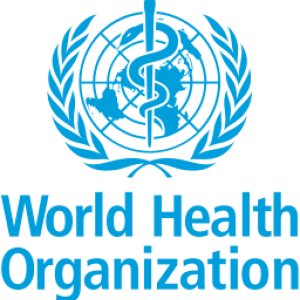World Health Day 2025: WHO supports the health of mothers and children in Ukraine as the cornerstone of strong and resilient communities
07 April 2025
Every year, on April 7th, we mark World Health Day by highlighting one of the critical global health issues. In 2025, the focus will be on maternal and newborn health - the foundation of lifelong well-being and stronger communities. Maternal health is a key priority for the WHO, rooted in a human rights-based approach and closely linked to efforts on universal health coverage.

In Ukraine, WHO is working to ensure hopeful futures for all despite the ongoing challenges of more than three years of war. Our work in Ukraine focuses on high-impact interventions that support the health and well-being of women, newborns, and children. The health of mothers and babies is the cornerstone of strong families and resilient communities.
Vaccination
Vaccines protect babies from dangerous diseases and their complications from the first days of life. Immunization helps children's bodies recognize and fight infections. Protecting children from measles, polio, pertussis, and other serious diseases is a critical step toward a healthier future.
Together with our partners, we have received support from the Global Alliance for Vaccines and Immunization (GAVI) to provide the country with vaccines for the entire year 2025. This will save the national budget approximately USD 6.5-8 million.
For the first time in Ukraine, we conducted a study on the proper temperature for storing and transporting vaccines. This allows us to ensure that immunobiological products maintain their efficacy on the way from the manufacturer to the recipient.
WHO specialists continue to surveil vaccine-preventable infections. In particular, teams provide expert support to the Regional Centres for Disease Control and Prevention to detect, report and investigate cases of measles, mumps and acute flaccid paralysis, and to increase the vigilance of health-care workers.
The WHO in Ukraine, with partners such as the Global Alliance for Vaccines and Immunization (GAVI) and UNICEF, works to make immunization services accessible and convenient for all.
Nutrition
WHO supports efforts to promote balanced childhood nutrition in Ukraine, addressing overweight and obesity - two major public health challenges. Through initiatives like the WHO European Childhood Obesity Surveillance Initiative (COSI), we help monitor obesity prevalence, identify key risk factors, and support governments in implementing effective interventions.
Ukraine has joined the WHO European Childhood Obesity Surveillance Initiative (COSI) for the first time and has committed to further monitoring children's health with other 48 countries. The COSI tracks trends in overweight and obesity among primary school-aged children in the whole region covering over 1,7 million children. The 2023–2024 survey in Ukraine, conducted with support from national ministries and international partners, measured over 3,500 children across 187 schools engaging 3600 families.
Ukrainian kids demonstrate a comparatively low prevalence of overweight and obesity: findings reveal that 21.9% of Ukrainian 7-year-olds are overweight or obese, while the average estimate of OVERWEIGHT prevalence in the European region is 25%,
Alarming data on children's low fruit and vegetable consumption may pose health risk factors in the future. The COSI also data informs policy actions to promote healthier environments and combat childhood obesity.
Additionally, WHO is contributing to Ukraine’s First Lady’s School Nutrition Programme, working alongside partners to improve children’s diets.
Child mental health
Support for children's and adolescents' mental health in primary healthcare through implementing the Mental Health Gap Action Programme (mhGAP) – in 2024, more than 80,000 young patients received these services.
To alleviate the symptoms of perinatal depression and enhance maternal well-being, WHO offers evidence-based guidelines through its "Thinking Healthy" psychological intervention. The availability of straightforward instructions in Ukrainian ensures that mental health and psychosocial support (MHPSS) service providers have free access to effective tools for managing perinatal depression.
WHO oversees the roll-out of EASE intervention in Ukraine to address common mental health problems among teenagers in Ukraine with a partnership with UNICEF and UNHCR.
Essential support for mothers and newborns in the frontline regions
Clean water for maternity wards: WHO has equipped frontline hospitals with critical water treatment stations, ensuring that facilities- especially those with maternity wards- can continue operating despite the ongoing threats of hostilities. In 2024 alone, 382 babies were delivered in Bobrovytsia and Chuhuiv hospitals.
Modular clinics providing essential care: Our modular primary health clinics provide antenatal and postnatal care, immunization, breastfeeding support, mental health and psychosocial support (MHPSS), and other essential services for the entire community. Currently, 23 modular clinics are operating in the most affected by war regions.
Heating and water safety: Our heating units ensure that newborns stay warm during any rapture of services.
Emergency medical evacuations: With the support of EU partners and Artesian, WHO helps transfer critical newborn and pediatric patients abroad for specialized care. In 2024, 10 newborns were transported for life-saving treatment and five this year.


